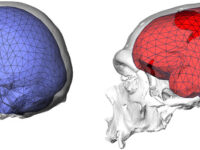Cognitive decline, characterized by the loss of memory and higher-level thinking skills, is a natural part of aging, having many causes that scientists are still trying to understand. However, researchers have found that engaging in certain lifestyle choices can increase or decrease later cognitive function. Participating in these activities won’t nullify pre-existing genetic factors, but there may be a tentative correlation between certain activities and improved cognitive health.
Participating in these activities won’t nullify pre-existing genetic factors, but there may be a tentative correlation between certain activities and improved cognitive health.
A review published in Frontiers in Aging Neuroscience examined several of these lifestyle changes and the potential impact each could have on reducing the prevalence of dementia, a form of severe cognitive decline. Specifically, the researchers investigated musical experience and the risk of cognitive decline and found a link between people who are musically active throughout their lives and certain cognitive advantages later in life, such as improved ability to perceive speech, increased memory capacity, and more efficient cognitive organizational processes. Although these positive effects are most prevalent in lifelong musicians, researchers have also found that older adults who start engaging with music still gain cognitive benefits. A study on adults who started a six month program where they learned piano for three hours a week found that cognitive benefits not only developed but continued after a three month delay, suggesting that the positive effects persist.
They also discussed two other simple lifestyle changes: exercise and meditation, which are associated with improved cognitive function. The authors note that individuals ought to lead an active lifestyle in youth and continue participating in forms of healthy exercise in older age. Some studies have found that meditation has positive effects on cognitive functioning, but they note that it is harder to confirm this connection as there are no empirical parameters to definitively detect a meditative state.
Much is still unknown about cognitive decline and the factors that affect it, but it is important to be aware of how certain choices may help our cognitive function in the future.
Beyond these three factors, there are many others that play a role in cognitive health, making it difficult to isolate and prioritize any factor in particular. Researchers are still trying to understand the reasons why each factor improves cognitive functioning. Neuroplasticity, or the ability of neurons to create new connections to grow and reorganize brain networks, seems to be improved by exercise, musical practice, and meditation, which consequently make the brain less susceptible to cognitive decline. Much is still unknown about cognitive decline and the factors that affect it, but it is important to be aware of how certain choices may help our cognitive function in the future.
Source: 1
Image Source: Pixabay






